Documentary Review: 'Bob Ross: Happy Accidents, Betrayal and Greed'
The PBS icon emerges unscathed from a documentary that tries to grasp his place in our modern culture.

Bob Ross’s place in American popular culture is remarkably unique. He slowly became a welcome presence on PBS, he became a figure of derision and mockery for a time, people taking easy shots at his earnest love of painting, his unique hairstyle, and so on, and then he came back around to becoming an icon. As the new documentary, Bob Ross: Happy Accidents, Betrayal and Greed, rightly points out, amid the pandemic, the calming presence of Bob Ross became a welcome and soothing balm, a pleasant safe space.
That his real life was far more tumultuous than his television presence is no surprise, no life could be as peaceful as Ross’s whisper soft persona. What the documentary does is give the tumultuousness a proper context. It’s not salacious, per se, but it’s detailed and willing to go there when the subjects call for it. Ross may have been a pussycat on the air but he was also a pussycat in real life who happened to get mixed up with lions and tigers of the business world.
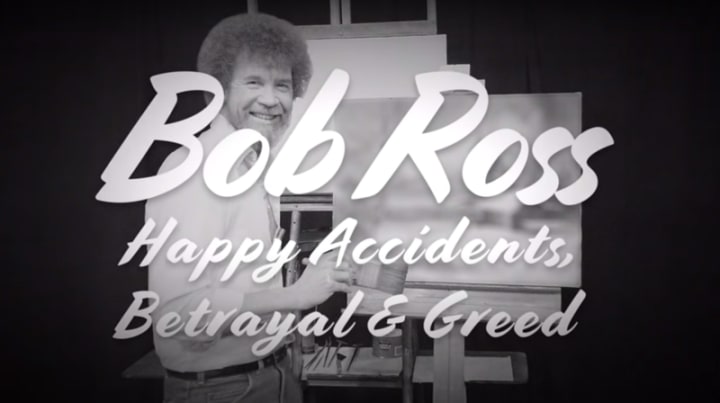
Bob Ross: Happy Accidents, Betrayal and Greed takes us on a journey through the life of Bob Ross via the people who loved him, his son, Steve, his close friends, and the staff of his television show to whom he was a wonderful friend. Steve Ross tells us of his father’s life and how the two were bonded through painting but also painfully divided over Ross’s dedication to his public persona and the notion that his son might carry on his legacy.
Perched and prepared to pounce on this paternal strife were Ross’s allegedly duplicitous business partners, who came to dominate the painter's life, just as it was coming to an all too early end in 1995. Though he always seemed so much older and wise, Ross was a mere 52 years old when he passed away, a fact that never fails to blow my mind. Then again, thanks to the efforts of his business partners, I didn’t realize Ross was dead for many years after he actually died.
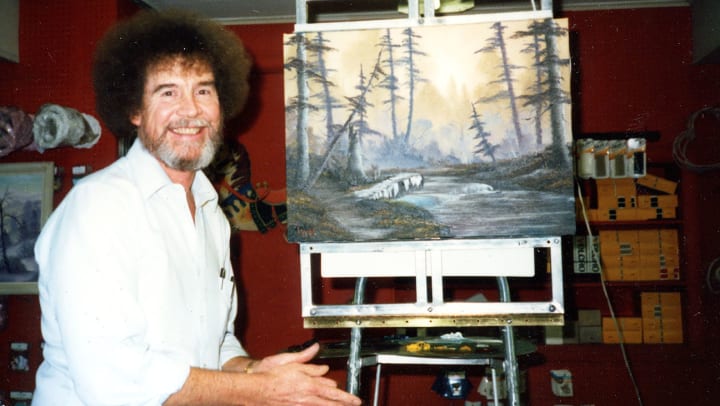
The second half Bob Ross: Happy Accidents, Greed and Betrayal shifts gears from burnishing the legacy of the famed painter and into an exploration of the way Ross’s likeness was exploited and used to sell products and keep alive the fortunes of his business partners who went as far as not telling close friends of Ross that he’d died out of fear of too much public grief harming the Ross brand. That’s an allegation and not one well proved in the documentary but the conjecture is compelling, especially from a friend who still seethes over not having been told of his friend’s funeral.
It’s hard to call Happy Accidents a journalistic effort, this is strictly from the aggrieved perspective of Ross’s son, but director Joshua Rofe does score some points on Ross’s former business partners, who refused to participate in the film and made legal threats against the doc. As Rofe shows off all of the various Bob Ross products including obvious ones such as painting supplies and then expanding out to include everything from Bob Ross chewing gum, toothbrushes, a crock pot, and the appalling Bob Ross Chia Pet, it's hard not to agree that he's being willfully exploited.
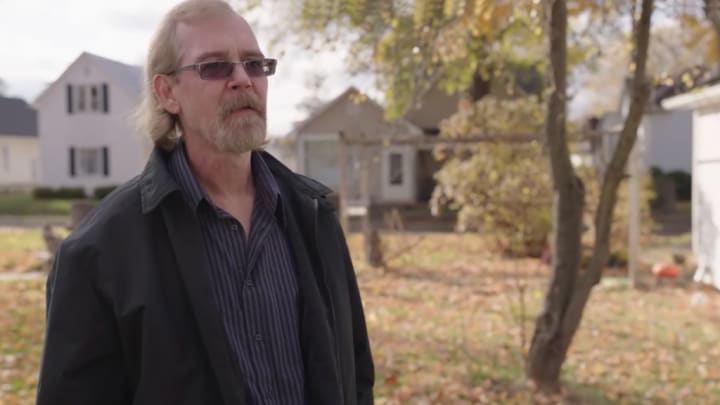
It’s hard to argue that the current owners of Ross’s name and likeness haven’t been exploiting Ross’s legacy, especially after his death where he has no voice in how his likeness is abused. That his son, whose failed lawsuit over his father’s likeness is featured in the lynchpin of the final act of Happy Accidents, has no role and benefits little, if at all, from his father’s legacy is certainly something Ross would not have stood for were he alive today.
Many of you might be wondering, how does Bob Ross come off in a documentary that includes Betrayal and Greed in the title. You will be happy to know that he remains a beloved and venerated figure throughout. Like many, he had foibles, he was flirtatious with women and liked their attention but he is said to have been a mostly good husband and father and his onscreen persona translated to much of his private life, a welcoming, positive and inclusive personality that made people feel welcome.
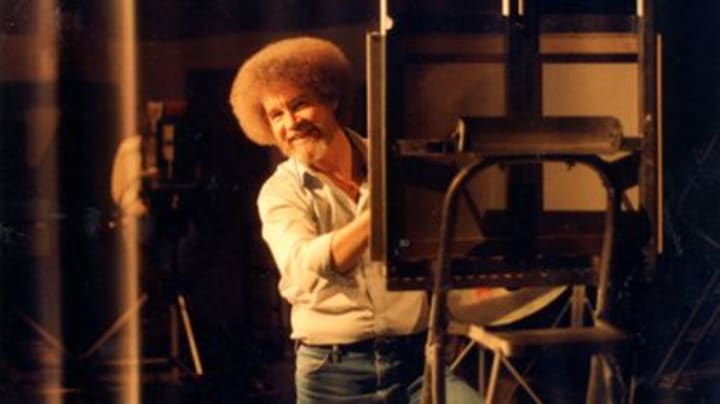
What the documentary did for me was unlock the appeal of Ross, his comfort food style of teaching. I always rolled my cynical eyes at ‘happy little trees’ but after this, I am much warmer to that idea. I can now see why he’s gone from a pop culture punchline to a beloved icon that people are right to feel protective of. He has a genuine, welcoming grandpa like presence that likely made him seem older than he was but also a non-threatening and encouraging presence.
In an era where there are so many things that make people feel bad about themselves, we need a Bob Ross to provide warm, soft, encouragement and reassurance. Having grown up bathed in the sarcasm and the yawning void of irony, aka the 1990s, I’ve finally come around to appreciate earnest, caring, open-hearted folks who don’t share my need to make everything into a self-protective joke. Bob Ross was earnest before earnest became cool.
Bob Ross: Happy Accidents, Betrayal and Greed will be available to stream on Netflix as of Wednesday, August 25th, 2021.
About the Creator
Sean Patrick
Hello, my name is Sean Patrick He/Him, and I am a film critic and podcast host for the I Hate Critics Movie Review Podcast I am a voting member of the Critics Choice Association, the group behind the annual Critics Choice Awards.




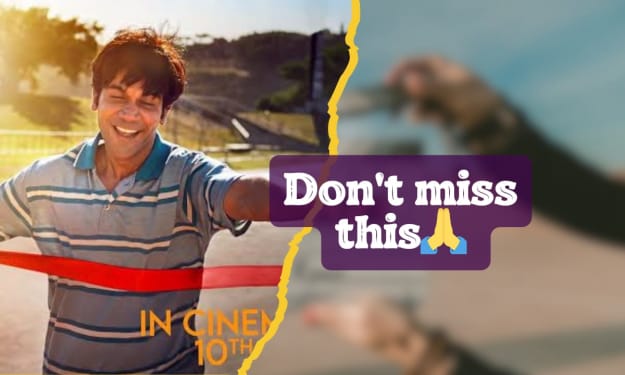

Comments
There are no comments for this story
Be the first to respond and start the conversation.